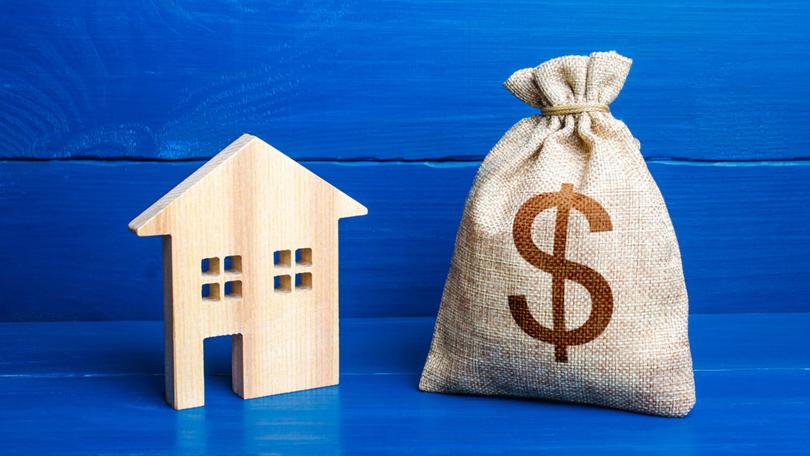Bruce Brammall: Smart or stupid? Should you use superannuation to pay off your mortgage at retirement?
Rising property prices and higher mortgages will mean that strategies involving using super to pay off the mortgage will probably, unfortunately, become more prolific. But the numbers don’t always stack up.

Sometimes you have to smile at the ingenuity of your fellow man and their ability to thwart a government’s good intentions.
Governments generally try to do the right thing. They try to gently push “the great unwashed” down a path to better lives, often with laws that don’t make them particularly popular.
It’s done with all the benevolence that can be afforded politicians, who have to seek re-election every few years. (Call me a cynic.)
Sign up to The Nightly's newsletters.
Get the first look at the digital newspaper, curated daily stories and breaking headlines delivered to your inbox.
By continuing you agree to our Terms and Privacy Policy.But when it comes to personal finances, governments can only guide you in the right direction. They can’t force you to make smart decisions.
Particularly when it comes to superannuation.
What’s the point?
Governments committed to super in the 1980s as a way of getting employers to contribute to a better retirement for their employees throughout their working lives.
It was made palatable by providing tax concessions that turned superannuation into the equivalent of a Carribean tax haven — taxed bugger all for most of the time, then not at all in retirement.
What do governments want from super? They want you to build it, then slowly and evenly spend that down in retirement to have a better life. And be less of a burden on taxpayers.
That is, for example, amass $300,000 in super then spend that down gradually in your golden years, over and above any government age pension.
Outwit. Outplay. Outlast.
But just like the survivors that we are, Australians have adapted to learn how to “play the rules” for super in ways that suit them. And it’s led to some interesting alternative strategies for superannuation as a retirement resource over the years.
They might seem a little like going outside the spirit of the rules. You can lead a horse to water, but you can’t make it drink.
Bye-bye mortgage
Traditional thinking is that you have your mortgage paid off before your last pay-cheque.
That leaves your super to spend during retirement, on top of any Centrelink pension you might receive. And hopefully your super has done well enough to allow you to enjoy a wonderful retirement.
But many don’t plan it that way. In their last five to 10 years in the workforce, they look at their super and think “well, I’m going to use some/most of that to pay off the mortgage when I retire”.
Instead of hitting the mortgage hard in those final years they ease up, knowing they can draw from super to pay it down.
Why? It allows them to spend more and live it up a little during their pre-retirement years. Maybe even a lot.
To the extreme
A colleague said he once had a client come in wanting some retirement modelling done. This was back when the government pension age was 65.
The client said: “I want you to estimate our combined super balance at 65. And then I want you to tell me what the minimum mortgage repayments I would have to make to have my super balance equal my outstanding mortgage at retirement.”
They wanted to live well now, and believed they would be happy owning their home and living off a full Centrelink pension in retirement.
Not for most
Rising property prices and higher mortgages will mean that strategies involving using super to pay off the mortgage will probably, unfortunately, become more prolific.
Some will choose it. Some won’t have a choice. But for most seeking a wonderful retirement, that won’t be the result they’re hoping to achieve.
There are many strategies that can help you pay off your home loan smarter, and sooner. They include using superannuation’s rules and low tax rates.
For example, salary-sacrificing extra into super in the final five to 10 years in retirement. Why?
If you’re earning about $100,000 and on the 34.5 per cent marginal tax rate, with the last $15,000 you earn you receive only $9825 after tax. You could use that for the mortgage, sure.
If you salary-sacrificed that to super, your super fund would receive $12,750. Tax saved? $2925. Done for 10 years, there’s nearly $30,000 in tax you haven’t paid (likely to be more if it’s invested) that can be drawn from your super to help pay off the loan.
Investing smarter, reducing fees, investing outside super, a better deal on your mortgage . . . if you’re wanting more than just a government pension in retirement, the choice is yours. Get advice.
Bruce Brammall is the author of Mortgages Made Easy and is both a financial adviser and mortgage broker. bruce@brucebrammallfinancial.com.au
